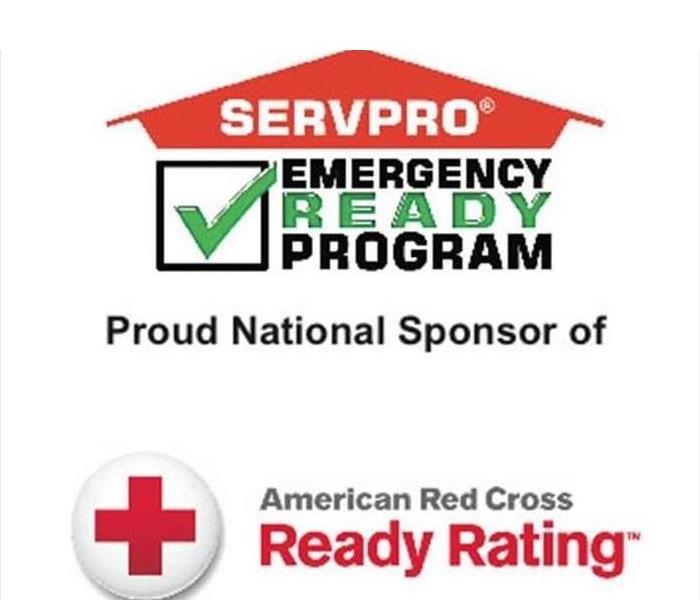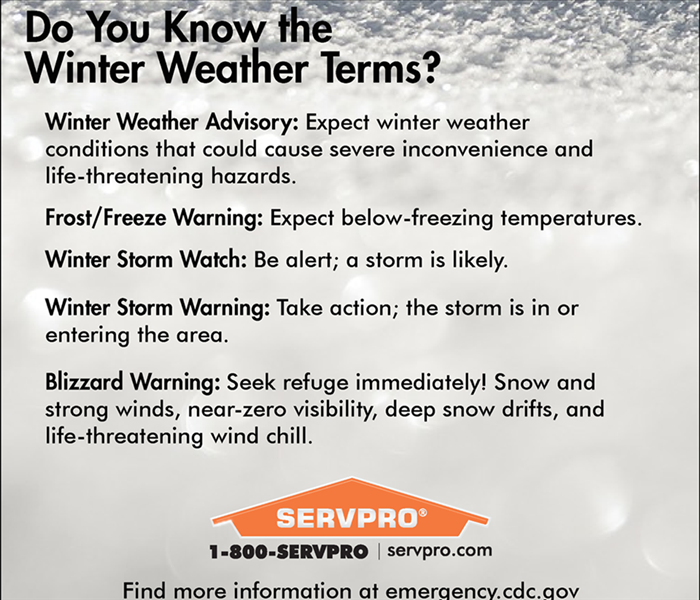Archived General Blog Posts
What the Polar Vortex Means for Your Pipes
1/15/2024 (Permalink)
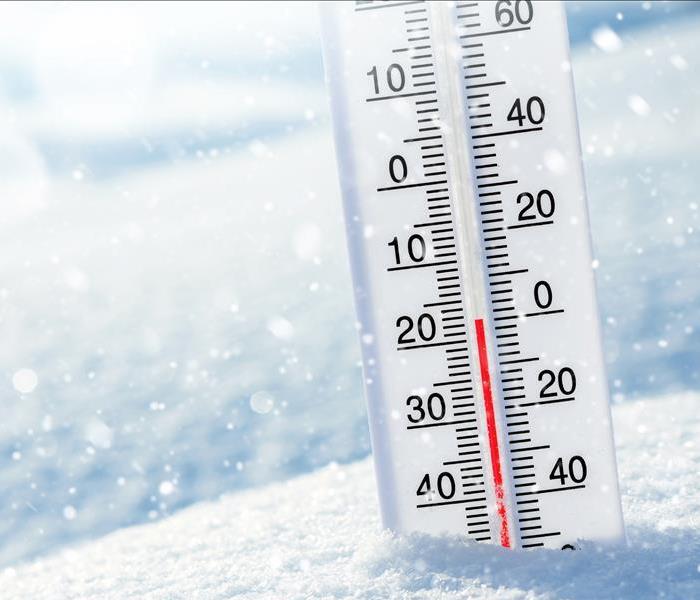 Polar Vortexes bring exceedingly cold temperatures
Polar Vortexes bring exceedingly cold temperatures
As the winter weather continues, "Polar Vortexes" become far more likely, signaling plummeting temperatures and severe weather conditions. This meteorological term, often associated with bone-chilling cold, can have a profound impact on daily life, particularly for homeowners and business owners. In addition to several drops in temperature to worry about, polar vortexes also heavily affect plumbing systems. As temperatures dive, the risk of pipes freezing and subsequently bursting increases, potentially leading to severely damaging water floods. Understanding the polar vortex, how it affects plumbing piping, and the necessary preventive measures are essential for bracing for the winter months. SERVPRO of East Niagara has crafted some preventive measures you can utilize to ensure your plumbing stays safe during the ongoing polar vortex.
Understanding the Polar Vortex and Its Impact
A polar vortex is essentially a vast expanse of swirling cold air that typically envelopes the polar regions. However, during the winter, the vortex at the North Pole often expands, pushing frigid air toward the equator and affecting much of the Northern Hemisphere. This shift can result in a sudden and steep drop in temperatures, often catching businesses and residences off-guard.
The critical issue with these plummeting temperatures is their effect on water pipes. Water expands when it freezes, and this expansion can exert extraordinary pressure on pipes, regardless of whether they are made of metal or plastic. When the pressure becomes too great, pipes can burst, leading to water damage, the potential for mold growth, and the need for repairs on top of restoration and cleaning services.
Prevention and Protection
To mitigate the risks of a polar vortex freezing your pipes, consider the following preventive steps:
- Insulate Pipes: Wrapping exposed pipes in foam insulation, particularly those in unheated areas like basements, attics, and garages, can significantly reduce the risk of freezing.
- Maintain Consistent Indoor Temperature: Keeping your home heated consistently, even when you're away, helps keep the internal temperature of pipes above freezing.
- Allow Faucets to Drip: Allowing a slight drip in faucets can prevent pressure buildup within pipes, reducing the risk of freezing and bursting.
- Drain Water from Pools and Sprinklers: Drain water from the swimming pool and sprinkler supply lines following the manufacturer's instructions.
- Close Inside Valves Supplying Outdoor Hose Bibs: After removing and draining outdoor hoses, close the inside valves that supply these bibs but leave the outside valve open.
- Insulate Vulnerable Spaces: Increase insulation in areas like attics, basements, and crawl spaces to maintain higher temperatures.
- Open Cabinet Doors: Allow warmer air to circulate around plumbing by opening kitchen and bathroom cabinet doors.
The polar vortex, while a natural weather phenomenon, poses a significant challenge to plumbing, particularly regarding the risk of frozen and bursting pipes. By understanding this meteorological event and taking proactive, preventative measures, you can safeguard your home against the potentially devastating and costly consequences. Prevention actions are far more effective and less costly than repair. Stay warm, stay informed, and prepare your home for whatever the winter brings.
Should you incur any water or storm damage during the Polar Vortex, feel free to contact SERVPRO of East Niagara, and we'll make it "Like It Never Even Happened!"
Wear Sunscreen
7/11/2019 (Permalink)
Here at SERVPRO we talk about protecting your home frequently. Our hope is that we can help you prevent most disasters and recover quickly from those that you can’t anticipate. We want where you live to be safe and healthy, but what about the home you can’t replace? Taking care of your body is even more important than homeowner tips, and that starts with your skin.
Skin cancer is the most common form of cancer in the US. More than 3.5 million skin cancers in over 2 million people are diagnosed annually.
One in five Americans will develop skin cancer in the course of a lifetime.
Over the past 31 years, more people have had skin cancer than all other cancers combined.
Skin cancer isn’t reserved for the tanning bed regulars or the fair skinned. That being said, I just wanted to pass along some information from the Skin Cancer Foundation on how you can protect your skin in the midst of all these summer activities (and even in the off-season).
Use a sunscreen of SPF 15 or higher whenever you spend time outdoors.
- This applies to all outdoor activities: athletics, shopping, picnicking, walking or jogging, gardening, even waiting for a bus.
- Use a broad spectrum (UVA/UVB) sunscreen with an SPF of 15 or higher every day. For extended outdoor activity, use a water-resistant broad spectrum (UVA/UVB) sunscreen with an SPF of 30 or higher.
- Apply liberally and evenly to all exposed skin. The average adult in a bathing suit should use approximately one ounce of sunscreen per application. Not using enough will effectively reduce the product’s SPF and the protection you get.
- Be sure to cover often-missed spots: lips, ears, around eyes, neck, scalp if hair is thinning, hands, and feet.
- Reapply at least every 2 hours, more often if some of the product may have been removed while swimming, sweating, or towel-drying.
- Choose a product that suits your skin and your activity. Sunscreens are available in lotion, gel, spray, cream, and stick forms. Some are labeled as water resistant, sweatproof, or especially for sports; as fragrance-free, hypoallergenic, or especially for sensitive skin or children.
Cover up.
- Wear long-sleeved shirts and long pants. Tightly woven fabrics and dark colors, such as deep blue and black, or bright colors, such as orange and red, offer more protection. If you can see light through a fabric, UV rays can get through too. Water makes fabrics more translucent, so do not rely on a wet T-shirt.
- A broad-brimmed hat goes a long way toward preventing skin cancer in often-exposed areas like the neck, ears, scalp, and face. Opt for a 3-4 inch brim that extends all around the hat. Baseball caps and visors shade the face but leave neck, lower face, and ears exposed.
- UV-blocking sunglasses with wraparound or large frames protect your eyelids and the sensitive skin around your eyes, common sites for skin cancer and sun-induced aging. Sunglasses also help reduce the risk of cataracts later in life.
Seek the shade.
- Be aware, however, that sunlight bouncing off reflective surfaces can reach you even beneath an umbrella or a tree. Never seek a tan.
- There is no such thing as a healthy tan. A tan is the skin’s response to the sun’s damaging rays.
Stay away from tanning parlors and artificial tanning devices.
- The UV radiation emitted by indoor tanning lamps is many times more intense than natural sunlight. Dangers include burns, premature aging of the skin, and the increased risk of skin cancer.
Protect your children and teach them sun safety at an early age.
- Healthy habits are best learned young. Because skin damage occurs with each unprotected exposure and accumulates over the course of a lifetime, sun safety for children should be a priority.
SERVPRO of Eastern Niagara County cares about YOU!
MARCH is RED CROSS MONTH
3/4/2019 (Permalink)
Around 3.1 million people donate blood through the American Red Cross.
The American Red Cross collects and processes about 40% of the nation's blood supply to approximately 2,600 hospitals and transfusion centers nationwide.
Volunteers constitute about 90% of the American Red Cross workforce, making it possible to respond to nearly 70,000 disasters every year, most of them home and apartment fires.
Every year, march is declared Red Cross Month by the president of the United States. The American Red Cross celebrates by honoring the "everyday heroes" who support and carry out the mission of the Red Cross by donating,giving blood, taking a class or volunteering. SERVPRO began a partnership with the American Red Cross in 2013, and became an official Disaster Responder partner in 2016. The Disaster Responder program provides families and individuals immediate support, comfort and assistance when a disaster, such as a house fire, happens to them. Disaster Responders also help communities prepare for disasters ahead of time by participating in preparedness activities such as the Smoke Alarm Installation Campaign.
To learn more about the American Red Cross, or about how you can get involved,visit redcross.org.
16 Ways To Make Your Home And Family Safer
2/19/2019 (Permalink)
16 Ways To Make Your Home And Family Safer
1. Test for radon.
This colorless, odorless gas is the second leading cause of lung cancer. Test every three years. A tightly sealed home increases your risk.
2. Install carbon monoxide detectors on every floor.
Many homes have CO alarms on the main floor and the floor where bedrooms are. But you should have carbon monoxide detectors on all other floors, including the basement.
3. Know about the surprising items that can go up in flames.
Battery-charged appliances, paper and cloth towels, and dryer lint are three items people don’t think of when they think of the fundamentals of fire safety. Know they could start a fire. Take precautions.
4. Replace 10-year-old electric blankets.
After 10 years, heating pads and electric blankets tend to cause problems. Replace them if they have charred spots, frayed or cracked electrical cords, or are old.
5. Toss out old space heaters.
Space heaters are a prime cause of fires. Replace old space heaters with the newer models that turn off automatically if they tip over or get too hot.
6. Check for mold every 3-5 years.
Mold damages our respiratory and immune systems. Buy a do-it-yourself kit or hire SERVPRO of Eastern Niagara County to detect mold every 3-5 years.
7. If you must smoke, do so only outside the house.
More fire deaths are caused by smoking inside the home than are caused by any other factor. Always dampen butts and ashes before throwing them away.
8. Be aware of and check potentially dangerous products like toasters.
Every year common toasters start thousands of fires. Clean out the crumbs and unplug your toaster when it’s not in use. Another common household product that can cause fires is your dryer.
For Cleanup Or Restoration Needs Call SERVPRO Of Eastern Niagara County At (716) 694-7776
9. Place critical papers in a fireproof box.
You may want to include your identification papers (like your Social Security card, passport, and birth certificate). Consider adding financial records, family photographs, and emergency cash in small bills.
10. Trim trees and shrubs around your home or business.
Dead branches hanging over your roof can fall and cause damage. Shrubs that brush against your house can bring an outdoor fire right into your home.
11. Keep your gutters clean.
If a gutter, drain, or downspout is clogged, water may build up and find its way into your house.
12. Have your chimney and fireplace inspected.
Use binoculars to examine the outside of your chimney for any cracks or signs of damage. Have your flue cleaned and inspected by a certified chimney sweep.
13. Consider how vulnerable your home is to wind damage.
Is your home protected from tornadoes, hurricanes, and other damaging winds? Consider how sturdy your doors and windows are. Do you need to fortify them? Research protective products like concrete canvas or cloth.
14. Know your area’s evacuation routes and shelters.
If you should have to vacate your home or business quickly you’ll be better off if you’ve already planned your route and destination. And consider having an emergency evacuation kit stored in your car.
15. Keep in mind people and pets who may have special needs.
How will you get them to safety if a natural disaster causes you to evacuate?
16. Read up on how to best prepare for a disaster.
Help Is Here
The team at SERVPRO of Eastern Niagara County has specialized training and experience in fire restoration services, natural disaster prevention, and natural disaster cleanup. Call us at 694-7776.
Call us to help you
1/7/2019 (Permalink)
SERVPRO of Eastern Niagara County provides 24-hour emergency service and is dedicated to being faster to any-sized disaster in WNY . We can respond immediately to your emergency and have the expertise to handle your restoration or cleaning needs.
- 24-Hour Emergency Service
- Faster to Any-Sized Disaster
- Highly Trained Restoration Technicians
- A Trusted Leader in the Restoration Industry
- Locally Owned and Operated
- Advanced Restoration and Cleaning Equipment
Have Questions? Call Us 24/7
Residential Services
Whether your Arlington home needs emergency flood damage or your upholstery cleaned, you can depend on us. Our technicians have extensive cleaning and restoration training and can make your property look its best. Learn more about our residential services:
Commercial Services
There's never a convenient time for fire or Water damage to strike your WNY commercial property. Every hour spent cleaning up is an hour of lost revenue and productivity. So when the need arises for professional cleaning or emergency restoration services we have the training and expertise to respond promptly with highly trained technicians to get your property back to business.
Winter Storm Warning
11/26/2018 (Permalink)
BUFFALO, N.Y. (WKBW) - Winter Storm Watch for Southern Erie, Wyoming, Chautauqua and Cattaraugus counties from late Monday evening through Wednesday evening. Heavy snow at times combined with gusty winds will make for low visibility and difficult travel at times. Over a foot of snow is expected between Monday night and Wednesday evening in most persistent bands.
Rain today with temperatures in the mid-40s. Scattered showers this afternoon and less into the evening before the transition to snow overnight. Wintry conditions will begin Monday night. Colder air and a cold mainly westerly flow will set up widespread snow showers on the Niagara Frontier and more organized snow and lake snow over the hilly terrain south of the metro area. Although the heaviest amounts will fall on the hills, it does appear there will be periods of slippery travel to the north as well, especially Tuesday night into Wednesday AM.
A trough of low pressure over the northern Great Lakes may increase snow coverage for a while toward Wednesday, and there may be some slick roads for the AM commute. Seasonably chilly temperatures will remain on Thursday as drier air moves in. A disturbance will bring some rain and wet snow showers across the region on Friday.
We should be dry on Saturday, with a chance of rain and snow showers arriving at night. Current indications point to rain next Sunday, rather than a mix.
MONDAY:
HIGH: 45
LOW: 35
Rain becoming more intermittent and showery in the afternoon. SE: 15 becoming SW late in the day. Scattered rain and wet snow showers developing overnight, turning to snow by AM. Little/no accum north. As much as 2-4" hills by dawn.
TUESDAY:
HIGH: 35
LOW: 33
Snow showers with more organized elevation-driven snow setting up mainly on the hilly terrain below the Buffalo Southtowns. Significant accumulation is likely in this heavier band with additional totals possibly reaching 4-8" by late Tuesday night. West winds: 15-30 will cause Blowing Snow and Reduced Visibility, especially in the heavier snow showers. At least a few Slick Roads will develop on the Niagara Frontier as well, even with less accumulation. Accumulation will increase overnight, with a few inches on the Niagara Frontier as well, and additional heavier amounts on hills.
WEDNESDAY:
HIGH: 35
LOW: 30
Breezy and Cold with Snow Showers, heavier on hills. However, enough will fall on the Niagara Frontier at times to produce slick roads to the north, too.
THURSDAY:
HIGH: 35
LOW: 30
Lingering snow showers ending AM, becoming Partly Sunny.
FRIDAY:
HIGH: 37
LOW: 27
A period of rain and snow showers. Little or no accumulation.
SATURDAY:
HIGH: 40
LOW: 28
Sunshine, then increasing clouds. Chance of rain and wet snow showers overnight.
SUNDAY:
HIGH: 47
LOW: 40
Rain showers likely, breezy
https://www.wkbw.com/weather/todays-forecast/7-first-alert-weather-forecast
Halloween Safety
10/29/2018 (Permalink)
Halloween is almost here. It is a time of fun and festivities for children and adults alike, including decorating the house, dressing up in costumes, going out trick-or-treating, and attending spook-filled parties. But don’t forget about Halloween fire prevention!
Unfortunately, many of the favorite activities associated with Halloween can also be serious fire hazards, especially if precautions aren’t taken. According to the National Fire Protection Association, Halloween fires are responsible for $13 million in property damage every year, in addition to risks of injury and death.
In order to make sure you and your family stay safe, make sure to follow these Halloween fire prevention tips:
Consider Costume Length and Materials.
Dressing up can be one of the most fun activities associated with Halloween. Unfortunately, some costume can be fire hazards.
Look for costumes that are made of flame-retardant materials.
Avoid long-trailing costumes or outfits that are oversized and bulky.
Pay Attention to Decoration Locations.
Jack-o-lanterns and other candlelit decorations are always popular on Halloween. However, if you use real candles for these decorations, it is important to keep them in a safe location. Make sure they remain at least three feet away from people and things that could accidentally ignite.
Similarly, corn stalks, hay bales, and paper decorations need to remain at least three feet away from any heat source or flame. Flammable decorations that are too close to a light bulb or heater may start a fire.
Make sure no Halloween decorations are blocking your exits. If you need to escape quickly, you will want all paths out the house to be clear and easily accessible.
Choose an Alternative Light Source.
One of the best ways to keep safe on Halloween is to use battery operated lights or glow sticks instead of open flames.
If you and your family are going out trick-or-treating, be sure to carry a flashlight. Make sure it is bright enough so that you can see any potential fire hazards and so that others can see you and the full extent of your costumes.
Practice “Stop, Drop, and Roll”.
Advise young children to keep far enough away from any decorations that may have candles. And make sure they know to “stop, drop, and roll” if their costumes should catch on fire.
Check Your Fire Alarms.
October is Fire Prevention Month, so make sure to double check that your fire alarms are working properly, just in case.
Fall Cleaning Checklist
9/28/2018 (Permalink)
As leaves start to fly, revisit your spring cleaning list and add a few seasonal extras to prepare your house for the winter.
The new season should always begin with a fresh start, especially in your home. Is your home ready for the beautiful autumn weather in Upstate NY? We've done our research and with a bit of help from Real Simple, we can help you get through your fall cleaning checklist!
Check out your wooden floors are they scuffed up? See if they need to be sanded or refurbished.
Test all of your home smoke and carbon monoxide detectors; especially as you go through the months with more active fireplaces and with your heat turned up.
Replace Furnace Filters. If you changed your furnace filter in the last three months, now is a good time to do it!
Don't forget the outside of your home too!
Check and clean the gutters before the red and orange leaves fall!
Time to drain and store your garden hoses, don't let them freeze when the first snow falls.
Touch up the paint on your home
Check out the full checklist here! http://www.realsimple.com/home-organizing/cleaning/fall-cleaning-checklist
And if you need an expert to come but to make sure you have your full checklist covered, give SERVPRO of Eastern Niagara County a call. We'll give you and your family a free estimate! (716) 694-7776
Hurricane Florence
9/14/2018 (Permalink)
Hurricane Florence is has made landfall. Our thoughts and prayers go out to those effected by this storm
https://www.cbsnews.com/news/hurricane-florence-category-2-path-tracking-latest-weather-forecast-north-carolina-2018-09-13-live-updates/
Back to School
9/6/2018 (Permalink)
It’s back to school time, which means the kids are finally out of the house! With your nest empty, it’s a perfect time to have restoration services done on your home.
SERVPRO of Eastern Niagara County offers several services to get your home back into pre-summer conditions, before it was torn up by your children.
Have your kids spent the summer tracking in dirt, mud and other unknown substances into the house? Then it might be time to get your carpets cleaned. SERVPRO offers a three-room special for $125, and just $25 for each additional room.
If you are noticing the air quality of your home is less than stellar – whether the air circulated is full of dust, dander or other chemicals -- an air duct cleaning may be in order.
According to the National Air Duct Cleaners Association, it is recommended to have air ducts cleaned every three to five years.
Getting your air ducts cleaned will not only improve the quality of air in your home, but it can also help decrease the cost of energy bills.
According to the U.S Department of Energy, 25 to 40 percent of the energy used for heating or cooling a home is wasted. When an HVAC system is clean, it doesn’t have to work as hard to maintain the temperature you desire. As a result, less energy is used, leading to improved cost-effectiveness.
Another service you might need is mold mitigation. If you have noticed mold in your home, it’s important to stop the spreading immediately.
Containing mold spores is vital to preventing mold growth, as well as getting wet surfaces dry. Mold begins to set in after two days, so there’s no time to wait.
With the kids out of the house, it’s the perfect time to get your home back in order.
Give SERVPRO a call, and we’ll make your house look like summer never even happened!
Happy New Year
12/29/2017 (Permalink)
Before the end of this year, we want you to know that we are very pleased and satisfied with all of our employees for their excellent performance through the year. Also, we want to extend the greetings to our dear clients, the other important part of the engine of our company. Happy New Year to all the people that help us make it "Like it never even happened."
We wish the best to our customers and employees, because you are the most important part of the company. Also to our team work, as a reward for their dedication and effort to deliver a first class service, SERVPRO of Eastern Niagara County wishes you a fabulous New Year to all our customers and employees.
The heat is on
9/25/2017 (Permalink)
Western New York is preparing for a very HOT beginning of the week. For it being fall time , the weather is very unseasonable .
Temperatures have already reached the 80’s and we know extreme heat is on its way. Extreme heat affects us all, but especially the elderly as well a small children. If possible those people would want to stay out of the sunlight, and in a perfect world indoors where it is air conditioning. But let’s be real… That is not real life!
In the area we live we have little choice but to work and play in extreme heat. But there are some precautions we can make to stay safer and healthier. You always want to wear loose-fitting and light colored clothing if possible. To protect from burns generously use sun screen. Watch for signs of heat exhaustion. Signs of heat exhaustion according to the Center for Disease Control include heavy sweating, clammy skin, weakness, nausea or vomiting, and even fainting. These symptomsshould be taken seriously as heat exhaustion can lead to heat stroke, which can be life threatening. If you suspect someone is suffering a heat stroke call 911 immediately, get them somewhere cool and try to reduce their temperature with wet towels or a cool bath.
Our part of the county is also known for humidity. Humidity can make the temperature feel up to 15 degrees hotter. This measured in the heat index. Always be aware of the heat index when you are working or playing outdoors this summer.
Please don’t forget about the four-legged family members this summer either. Make sure they have plenty of water. Refresh the water daily as water will get very warm in the elements. Consider bring them indoors if possible on extremely hot days. Never leave an animal in a vehicle for any length of time.
Reference: cdc.gov
National Preparedness Month
9/13/2017 (Permalink)
Different types of disasters and emergencies happen in communities across the country, but there are key steps that every household can take to be better prepared for them. If you do nothing else this month, take time to create a disaster plan including an emergency escape plan.
Make a clear plan of what to do in an emergency and in case of an evacuation.
Identify clear roles for everyone in the house.
Discuss how to prepare and respond to emergencies that can happen at home, work, and school.
Make a list of all the important things you may forget when in an emergency.
Have a disaster kit assembled for everyone in the house.
Have an out of the area emergency contact person saved on a smartphone.
Practice evacuating your home twice a year, especially if you have kids or pets. This makes it a routine and can make a real emergency situation less stressful.
According to the Red Cross there are many disaster apps now available for smartphones and tablets that can be downloaded to help with emergencies. Some of these apps include a full emergency app, tornado, hurricane, earthquake, wildfire and flood apps. If any of these disasters are common in your areas I would recommend downloading the corresponding app. With these apps you can know when to evacuate, where a shelter may be located, and exactly where the disaster occurred.
Go to: http://www.redcross.org/get-help/prepare-for-emergencies/mobile-apps for more information
Fall Cleaning
8/25/2017 (Permalink)
Did you know? The air in your home is 10 times more dirty than the air outside.
During the Spring and Summer months, allergens accumulate and fill areas of your home or office with dust, dust mites, animal dander, mold and other unhealthy elements. Unless you address the situation now, the air quality will continue to deteriorate.
Your friends at SERVPRO of Eastern Niagara County want to ensure that you and your property are properly prepared for the upcoming season. Therefore, we would like to offer you some helpful tips that will adequately prepare your property for the Fall:
- Eliminate mold and mildew indoors by cleaning under the refrigerator, washing and disinfecting garbage cans, scrubbing bathrooms, and cleaning or changing shower curtains
- Remove any wet debris from around the home or office, as mold spores are airborne particles that can easily float indoors
- Schedule to have your chimney cleaned within the next month. Excessive buildup of creosote and debris, as well as miscellaneous branches, leaves and animal nests can create a dangerous situation as it increases the potential to spark a chimney fire.
- Remember not to ignore your ductwork, vents and HVAC systems. Unnecessary dirt and debris can pose a serious threat to the health of your family or employees if they are not properly maintained.
SERVPRO’s licensed technicians can provide all of the remediation and cleaning services necessary for the upcoming season. A proper cleaning will combat all particles that infiltrate your property and provide for a safe and worry-free environment by:
- Enhancing your indoor air quality
- Improving overall air circulation
- Eliminating built-up dirt and contaminants
- Extending the life of your heating and cooling systems
Call the professionals at SERVPRO of Eastern Niagara County at (716) 694-7776 and rest easier this Fall knowing your property is clean and out of harm’s way.
Tips on how to stay healthy during the summer
7/12/2017 (Permalink)
- Stay cool and hydrated. Drink water, at least two to four cups (16-32 ounces) upon rising, and similar amounts if you are going out for activities and exercise. Carry water with you in a hard plastic container (more stable poly carbonate rather than polyethylene that leaches plastic into the water). You may also use a traveling water filter. Check your local water stores or www.realgoods.com. Most people need two to three quarts of liquid per day, and more in hot weather or with sweating and exercise. Review Chapter 1 of Staying Healthy with Nutrition or Chapter 7 of The Staying Healthy Shopper's Guide for further information on Water.
- While enjoying the sun and outdoors, protect yourself from overexposure to sunlight by wearing a hat and using natural sunscreens without excessive chemicals. Carry Aloe Vera gel for overexposure and have an aloe plant growing in your home for any kind of burn. The cooling and healing gel inside the leaves will soothe any sunburn. It works great.
- Keep up or begin an exercise program. Aerobic activity is important for keeping the heart strong and healthy. If you only work out in a health club, take some time to do outdoor refreshing activities -- hiking, biking, swimming, or tennis. Reconnecting with these activities will help keep your body and mind aligned.
- Enjoy Nature's bounty – fresh seasonal fruits and vegetables at their organic best. Consuming foods that are cooling and light -- fresh fruits, vegetable juices, raw vital salads, and lots of water -- will nourish your body for summertime activities. Include some protein with one or two meals. There are a number of light, nourishing proteins that don't require cooking. Most of these complement fruits and vegetables nicely-- nuts, seeds, sprouted beans, soy products, yogurt, kefir, and cottage cheese. Fish and poultry can also be eaten.
- Take some special summer time with your family, kids, and friends who share the enjoyment of outdoors. Plan a fun trip if you're able and motivated for a day or longer -- hiking in the wild, camping, playing at the river, or a few days resting at the ocean. Rekindling our Earth connection has benefits that last beyond this season, continuing to enrich the whole of your life.
- Relax and breathe. You've been working hard. This is the season to slow the pace a bit and absorb the light that stimulates your hormonal message center. Leave your cell phone at home or take a week off from TV. In many European countries, most of the population has a month off during the summer.
- Sun teas are wonderful. Use flowers and leaves (or tea bags) in a clear half- or one-gallon glass jar filled with spring water. Hibiscus or red clover flowers, peppermint, chamomile, or lemon grass are all good choices, or use your local herbs and flowers that you learn are safe, flavorful, and even medicinal. Leave in the sun for two hours or up to a whole day. Moon teas can also be made to enhance your lunar, dreamy side by letting your herbs steep in the cooling, mystical moonlight. Add a little orange or lemon peel, or a sprig of rosemary and a few jasmine flowers.
- Nutritional supplements can support you with a greater amount of physical energy, enhancing your summer activities. The B-complex vitamins are calming to the nervous system and helpful for cellular energy production, while vitamin C and the other antioxidants protect your body from stress, chemical pollutants, and the biochemical by-products of exercise. Helpful summer herbs are Siberian ginseng as an energy tonic and stress protector, dong quai is a tonic for women, hawthorn berry is good for the heart, and licorice root will help energy balance and digestion.
- Use the summer months to deepen the spiritual awakening begun in the spring. Begin by checking your local bookstore or the web for ideas that interest you. Plan a vacation that incorporates these new interests and provides you time to read, relax, contemplate, and breathe.
- Above all, give yourself the time to truly experience Nature. This can happen, even in a city park, if you relax and let in your surroundings. When traveling, take activities for the family and your first aid kit for bites, bee stings, and injuries. Check for ticks after your hikes. Watch for overexposure, take time in the shade, and drink your water.
SERVPRO Spring Cleaning
6/2/2017 (Permalink)
Life happens. Kids spill drinks, pets have accidents, and homes get dirty. SERVPRO of Eastern Niagara County has the expertise to provide a deeper clean than your basic house cleaning service. Our residential cleaning services will ease the burden of the constant maintenance cleaning of your home, but will also create a safe, clean and comfortable living environment for you and your family.
You know SERVPRO as a leader in Fire and Water Cleanup and Restoration, but our professional residential cleaning services can also make a dirty carpet "Like it never even happened."
Trying to get your home "spring" clean? How about SERVPRO clean? You can see what services we provide at our website, or call us 24/7 at 716-694-7776. Our team will gladly work with you to get your home fresh and clean for spring!
Memorial Day 2017
5/26/2017 (Permalink)
This Federal holiday honoring men and women who died while serving the U.S. military takes place the last Monday of May and has created many springtime traditions and tributes around various towns in America. By the late 1960s, Americans all over bugun this tradition in order to honor the fallen soldiers by decorating their graves with flowers and reciting prayers.
Originally, Memorial Day was known as Decoration Day and was chosen to be held on the 30th of May because it wasn’t the anniversary of any particular battle. It was to honor only the fallen soldiers of the Civil War but over time, it evolved to commemorate American military personnel who died in all wars. By 1968, Congress passed the Uniform Monday Holiday Act, which established Memorial Day as the last Monday of May and created a three-day weekend for federal employees.
Today, many cities and towns across America hold Memorial Day parades, incorporating military personnel and members of the veterans’ organization. Many people are often found visiting cemeteries and memorials to honor the countless fallen soldiers. Others throw parties and barbecues to enjoy the beginning of summer.
May: Skin Cancer Awareness Month
4/27/2017 (Permalink)
Here at SERVPRO we talk about protecting your home frequently. Our hope is that we can help you prevent most disasters and recover quickly from those that you can’t anticipate. We want where you live to be safe and healthy, but what about the home you can’t replace? Taking care of your body is even more important than homeowner tips, and that starts with your skin.
Skin cancer is the most common form of cancer in the US. More than 3.5 million skin cancers in over 2 million people are diagnosed annually.
One in five Americans will develop skin cancer in the course of a lifetime.
Over the past 31 years, more people have had skin cancer than all other cancers combined.
Skin cancer isn’t reserved for the tanning bed regulars or the fair skinned. That being said, I just wanted to pass along some information from the Skin Cancer Foundation on how you can protect your skin in the midst of all these summer activities (and even in the off-season).
Use a sunscreen of SPF 15 or higher whenever you spend time outdoors.
- This applies to all outdoor activities: athletics, shopping, picnicking, walking or jogging, gardening, even waiting for a bus.
- Use a broad spectrum (UVA/UVB) sunscreen with an SPF of 15 or higher every day. For extended outdoor activity, use a water-resistant broad spectrum (UVA/UVB) sunscreen with an SPF of 30 or higher.
- Apply liberally and evenly to all exposed skin. The average adult in a bathing suit should use approximately one ounce of sunscreen per application. Not using enough will effectively reduce the product’s SPF and the protection you get.
- Be sure to cover often-missed spots: lips, ears, around eyes, neck, scalp if hair is thinning, hands, and feet.
- Reapply at least every 2 hours, more often if some of the product may have been removed while swimming, sweating, or towel-drying.
- Choose a product that suits your skin and your activity. Sunscreens are available in lotion, gel, spray, cream, and stick forms. Some are labeled as water resistant, sweatproof, or especially for sports; as fragrance-free, hypoallergenic, or especially for sensitive skin or children.
Cover up.
- Wear long-sleeved shirts and long pants. Tightly woven fabrics and dark colors, such as deep blue and black, or bright colors, such as orange and red, offer more protection. If you can see light through a fabric, UV rays can get through too. Water makes fabrics more translucent, so do not rely on a wet T-shirt.
- A broad-brimmed hat goes a long way toward preventing skin cancer in often-exposed areas like the neck, ears, scalp, and face. Opt for a 3-4 inch brim that extends all around the hat. Baseball caps and visors shade the face but leave neck, lower face, and ears exposed.
- UV-blocking sunglasses with wraparound or large frames protect your eyelids and the sensitive skin around your eyes, common sites for skin cancer and sun-induced aging. Sunglasses also help reduce the risk of cataracts later in life.
Seek the shade.
- Be aware, however, that sunlight bouncing off reflective surfaces can reach you even beneath an umbrella or a tree. Never seek a tan.
- There is no such thing as a healthy tan. A tan is the skin’s response to the sun’s damaging rays.
Stay away from tanning parlors and artificial tanning devices.
- The UV radiation emitted by indoor tanning lamps is many times more intense than natural sunlight. Dangers include burns, premature aging of the skin, and the increased risk of skin cancer.
Protect your children and teach them sun safety at an early age.
- Healthy habits are best learned young. Because skin damage occurs with each unprotected exposure and accumulates over the course of a lifetime, sun safety for children should be a priority.
SERVPRO of Eastern Niagara County cares about YOU!
Lake Effect Snow Warning 2/15 & 2/16
2/15/2017 (Permalink)
Source "buffalonews.com"
Lake-effect snow will start falling Wednesday afternoon in varying amounts across Western New York but should subside by late Thursday afternoon, according to the National Weather Service.
- A lake-effect snow advisory goes into effect at 1 p.m. Wednesday for southern Erie County and could bring between 5 and 10 inches of snow, the weather service said.
- A lake-effect advisory also goes into effect at 4 p.m. Wednesday for Niagara, Orleans and Monroe counties. Forecasters predict from 4 to 8 inches in the most persistent snow bands.
- Meanwhile, a lake-effect snow warning in Cattaraugus and Chautauqua counties that goes into effect at 1 p.m. Wednesday may bring 8 to 14 inches in the heaviest spots, according to the weather service.
An "upstream connection" of northwest air will help to collect moisture off Lake Huron, boosting snowfall totals in affected areas of the Buffalo Niagara region, the weather service stated.
The advisory for southern Erie and the warning in the Southern Tier both expire at 4 p.m. Thursday. The advisory for counties along Lake Ontario expires at 7 p.m. Thursday
Holiday Decorating Tips
12/27/2016 (Permalink)
HOLIDAY DECORATING TIPS
Be careful with holiday decorations. Choose
decorations that are flame resistant or flame retardant.
- Keep lit candles away from decorations and other
things that can burn.
- Some lights are only for indoor or outdoor use, but
not both.
- Replace any string of lights with worn or
broken cords or loose bulb connections. Read
manufacturer’s instructions for number of light
strands to connect.
- Use clips, not nails, to hang lights so the cords do
not get damaged.
- Keep decorations away from windows and doors.
HOLIDAY ENTERTAINING
- Test your smoke alarms and tell guests about your fire escape plan.
- Keep children and pets away from lit candle. Keep matches and lighters up high in a locked cabinet.
- Stay in the kitchen when cooking on the stove top.
- KKK Ask smokers to smoke outside. Remind smokers to keep their smoking materials with them so young children do not touch them.
- KKK Provide large, deep ashtrays for smokers. Wet cigarette butts with water before discarding.
Source: http://www.nfpa.org/
Meet the SERVPRO of ENC team
10/27/2016 (Permalink)
 SERVPRO of ENC crew
SERVPRO of ENC crew
No one knows when a fire or water emergency will happen. But one thing's for certain: SERVPRO of Eastern Niagara County is ready to serve 24/7/365. The staff and crew of one of the nation's leading SERVPRO franchises brings quality production and outstanding customer service that sets it apart from other restoration companies in the city. These are the folks ready to meet your restoration and mitigation needs.
Pictured from left to right :
Administrative Assistant : Cheryl
Sales Marketing Manager: Reanna
Crew Member: Jake (Back Left)
Front : Len Amato (owner)
Crew Member : Adam (Back Center)
Crew Chief : Robin ( Front Right)
Crew Member: Steve (Front Right)
If you have a water or fire emergency, pipe bust, toilet overflow, mold, or even a general cleaning need, SERVPRO of Eastern Niagara Cleaning is here to help. Helping to make it " Like it never even happened"
National Preparedness Month
9/15/2016 (Permalink)
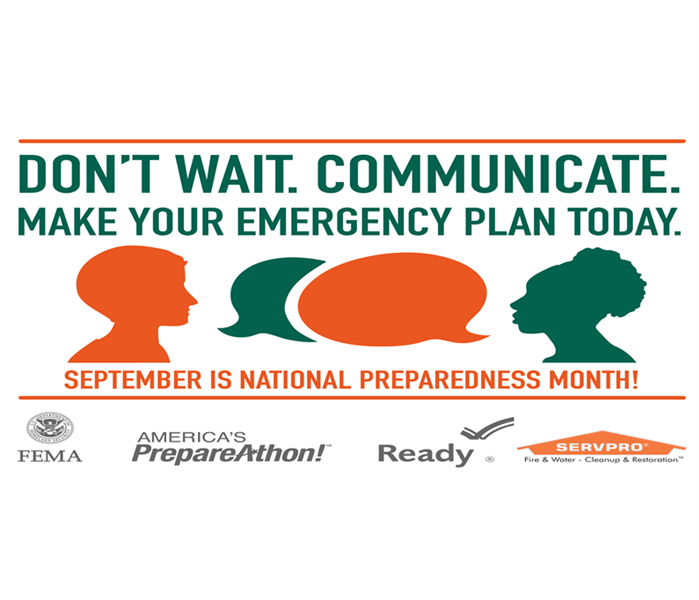 Be prepared with SERVPRO
Be prepared with SERVPRO
If disaster does strike, leaving fire, water or mold damage in its wake, area SERVPRO emergency restoration specialists offer an assortment of services to help local residents quickly restore damaged property.
This fall, in recognition of the annual National Preparedness Month (NPM), activities and events took place across the country to highlight the importance of emergency preparedness and to promote individual involvement in preparation for emergency response. Area franchises of the restoration company SERVPRO continue to offer free preparedness materials for NPM.
The focus of this year’s campaign: “Be Disaster Aware – Take Action to Prepare” is to encourage Americans to work together to take concrete actions toward emergency preparedness. SERVPRO often sees the benefits of emergency preparedness.
SERVPRO suggests residents throughout the country begin to prepare for a natural or man-made disaster by taking the following steps to lessen the impact on their families and their communities if disaster strikes.
Prepare an Emergency Supply Kit – Families should plan for 3 days of supplies, including water (a gallon per person per day is recommended) and non-perishable foods. Basic tools (wrench, pliers, can opener, matches), fire extinguisher, flashlight and radio with extra batteries, a first aid kit, extra clothing and hygiene items, garbage bags and duct tape, copies of important documents (insurance policies, ID, bank accounts), cash and local maps should also be included.
Establish a Family Emergency Plan – An out-of-town contact should be noted as a centralized, emergency communications facilitator in case a disaster strikes. That person’s number should be included in emergency contacts on each family members cell phone. If that person cannot be reached with a call, texting should be tried.
Stay Informed – Most communities have established emergency procedures and participate in activities planned to communicate those procedures. Checklists and other disaster preparedness tools are available from SERVPRO or at ready.gov.
While it’s common for individuals to insure their homes, cars and possessions, and even to prepare living wills to protect their families in the event of some unthinkable accident, only 36 percent believed there was a high likelihood of a natural disaster ever happening in their community, according to a Citizen Corps National Survey. And yet disasters can and do happen every day. In fact, FEMA has recorded more declared disasters to date this year alone, up from last year.
If disaster does strike, leaving fire, water or mold damage in its wake, area SERVPRO emergency restoration specialists offer an assortment of services to help local residents quickly restore damaged property.
SERVPRO OF ENC is here to help 694-7776
Grill Safety
6/1/2016 (Permalink)
Summer is finally here and we all know what that means… grilling time! Who doesn’t love a nice steak or veggies cooked on the grill while basking in the sun? It’s easy to forget that while grills are a great way to cook food in the summer, there are some hazards that go along with them. Here are some tips to remember for safe grilling!
1. Use your grill outside and away from low roofs. This will not only prevent toxins from lingering in your home but will also prevent potential fires.
2. Place the grill on a flat surface away from anything that may catch fire such as trees, shrubs, fences and hedges.
3. Do not grill with loose clothing or dangling bits that can catch fire or are flammable.
4. Have a fire extinguisher on hand and know how to use it. It’s also a good idea to have a small squirt bottle fill with cold water nearby to douse any minor flames.
5. Keep children and pets away from the grilling area
6. Do not leave the grill unattended.
Smoke and char contain chemicals that have been linked to health problems including cancer. Do not stand over the barbeque and inhale the smoke if at all possible. While char stripes may look good on your steak, char has been known to contain cancer causing toxins. Cook the meat to your liking and then remove it from the grill before too much char builds up.
Bristles from wire brushes have been known to get stuck on the grill and then people’s food which enters the digestive system causing abdominal pain. Use a different kind of nylon or plastic brush to clean your grill to ensure no one digests these harmful bristles. If you already use a wire cleaning brush or plan to continue using one, just make sure you check your grill before cooking to clean any bristles off.
Follow these simple safety tips for a fun and safe grilling season!
Fire Safety
2/25/2016 (Permalink)
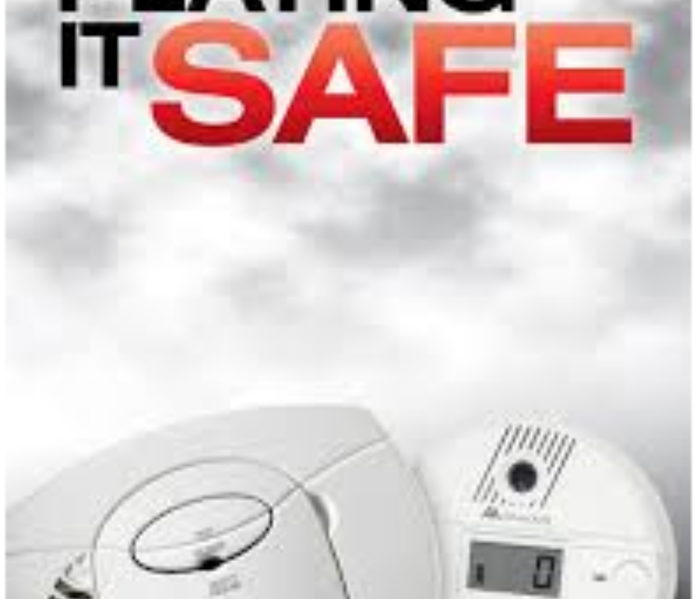 Keep your household safe
Keep your household safe
#permalink
New York State law requires smoke and carbon monoxide detectors in all types of housing. Detectors are the best way keep family members safe in the event of a fire or a release of highly poisonous carbon monoxide gas.
Smoke Detector Information
- Smoke detectors should be installed in every room of your home except the kitchen.
- Test your batteries once every six months, and replace your detector every ten years, or immediately if it becomes defective.
Carbon Monoxide Detector Information
- Carbon monoxide detectors should be installed on every level of a home that has a sleeping area, and on the level that contains a carbon monoxide/heating source.
- Battery-powered detectors should be tested very six months. The device itself should be replaced every 10 years or as soon as it becomes defective.
- Take all alarms and alerts seriously and call 911 immediately. Carbon monoxide is a colorless, odorless gas.
- Carbon Monoxide dectors should be placed on each floor
- Please take this seriously to prevent tradgedies and keep your family safe
"SERVPRO Emergency Prepared"
1/20/2016 (Permalink)
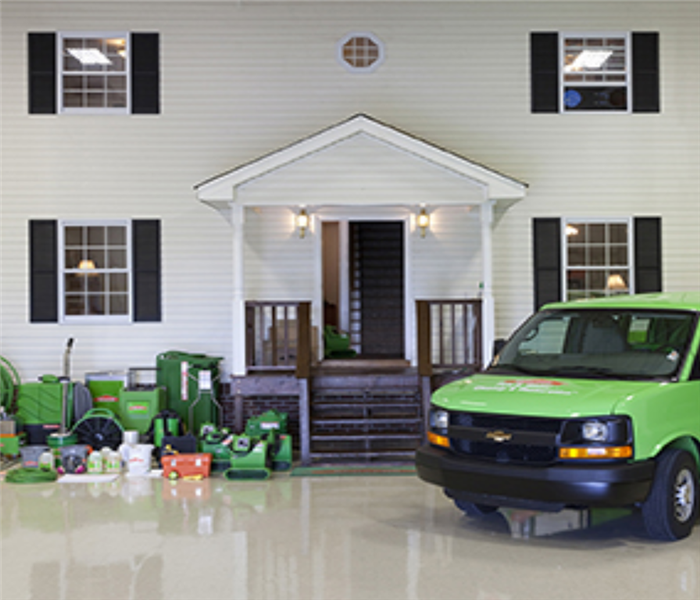 Be Prepared with SERVPRO
Be Prepared with SERVPRO
A disaster could strike at any time, be prepared. Both residential and commercial properties need to be prepared with a basic “Emergency Supply Kit”.
- Water, one gallon per person per day
- Food, non-perishable 3 Day Supply : Manual Can Opener
- Battery Operated radio, preferably an NOAA Weather Radio with tone alert and extra batteries
- Flashlight and Extra Batteries
- First Aid Kit
- Whistle to Signal for Help
- Clothing
- Dust masks or bandanas
- Plastic sheeting, garbage bags and duct tape
- Wrench or pliers to turn of utilities, if necessary
- Local Maps
- Hygiene Items
- Important Documents such as copies of insurance policies, identification and blank account information
- Cash
- Fire Extinguisher
- Matches in a waterproof container
Duct Cleaning
1/19/2016 (Permalink)
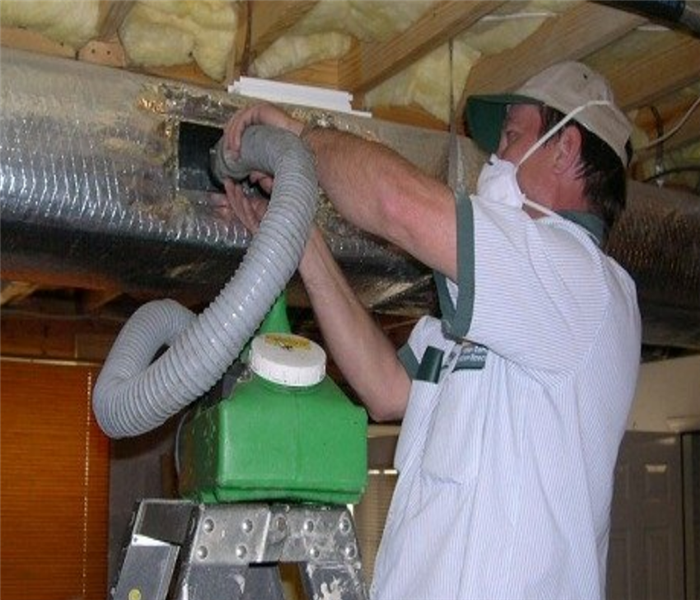 SERVPRO air duct cleaning
SERVPRO air duct cleaning
Sweeping Away Years of Dust and Dirt- Reducing Potential for damage and health Risks".
Why should you have your air ducts cleaned out?
Dirty ducts can circulate odors, contaminants such as mold, and irritating dust throughout your building or home.
How does SERVPRO clean your ducts?
SERVPRO professionals use a portable ventilation & air duct cleaning system to examine ductwork and make a clean sweep, removing years of dust and grime.
1. We begin the process by using patented equipment including a roto-scraper, which automatically adapts to the ducts shape and diameter while traveling through the duct, removing debris and filth before we begin vacuuming.
2. Next we use a powerful push-pull air delivery and collection system which transfers the debris from the ducting to a 16-gallon container.
3.Air is filtered through a HEPA filtration system, removing 99.97 % of particles in the air stream. HEPA filters capture debris and keep the environment clean.
4. As an optional process, a sealant or coating product may be sprayed to address odor or microbial concerns.
5. Filters will either be cleaned or replaced to remove odor or dirt
Be prepared for the COLD
1/4/2016 (Permalink)
The coldest temperatures are here in Niagara County, NY. When factoring in the windchill , temperatures are below zero.
The American Red Cross offers ten steps people can take to stay safe during the cold weather.
1. Layer up! Wear layers of lightweight clothing to stay warm. Gloves and a hat will help prevent losing your body heat.
2. Don’t forget your furry friends. Bring pets indoors. If they can’t come inside, make sure they have enough shelter to keep them warm and that they can get to unfrozen water.
3. Remember the three feet rule. If you are using a space heater, place it on a level, hard surface and keep anything flammable at least three feet away – things such as paper, clothing, bedding, curtains or rugs.
4. Requires supervision – Turn off space heaters and make sure fireplace embers are out before leaving the room or going to bed.
5. Don’t catch fire! If you are using a fireplace, use a glass or metal fire screen large enough to catch sparks and rolling logs.
6. Protect your pipes. Run water, even at a trickle, to help prevent your pipes from freezing. Open the kitchen and bathroom cabinet doors to allow warmer air to circulate around the plumbing. Be sure to move any harmful cleaners and household chemicals out of the reach of children. Keep the garage doors closed if there are water lines in the garage.
7. Better safe than sorry. Keep the thermostat at the same temperature day and night. Your heating bill may be a little higher, but you could avoid a more costly repair job if your pipes freeze and burst.
8. The kitchen is for cooking. Never use a stove or oven to heat your home.
9. Use generators outside. Never operate a generator inside the home, including in the basement or garage.
10. Knowledge is power. Don’t hook a generator up to the home’s wiring. The safest thing to do is to connect the equipment you want to power directly to the outlets on the generator.
Weather Terms
12/10/2015 (Permalink)
Be prepared for the winter weather !





 24/7 Emergency Service
24/7 Emergency Service

